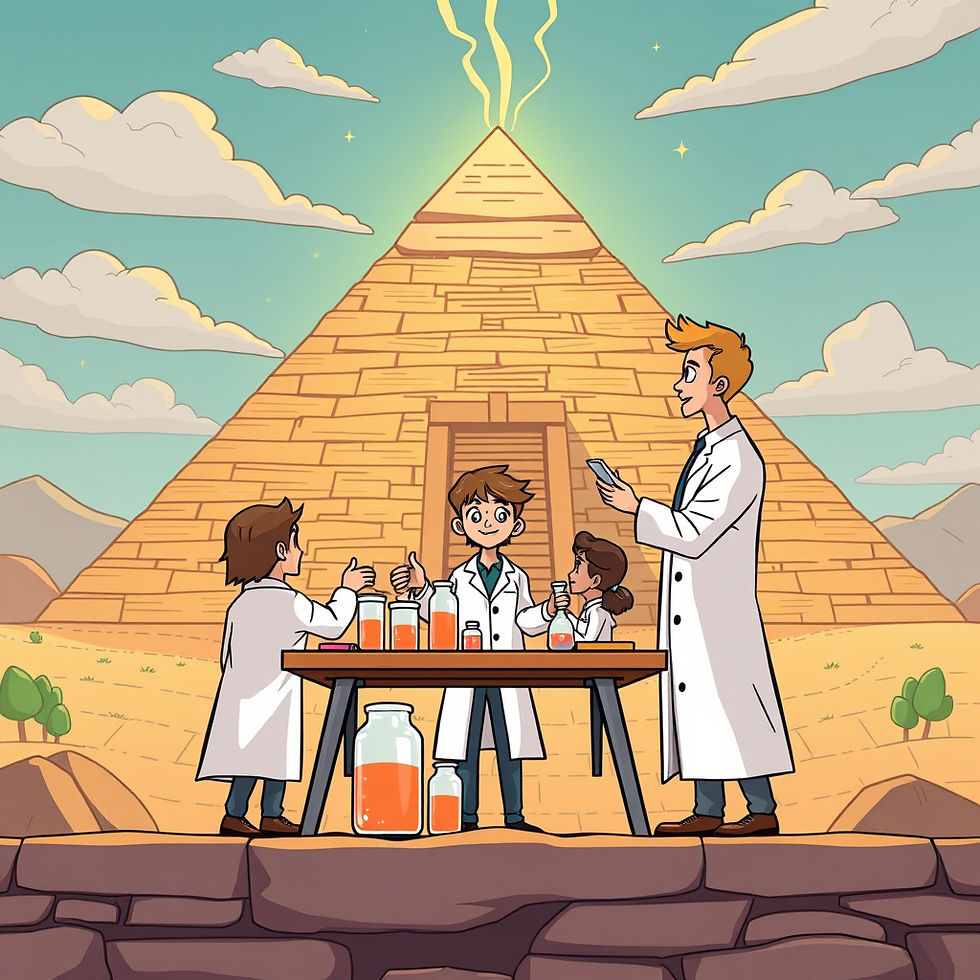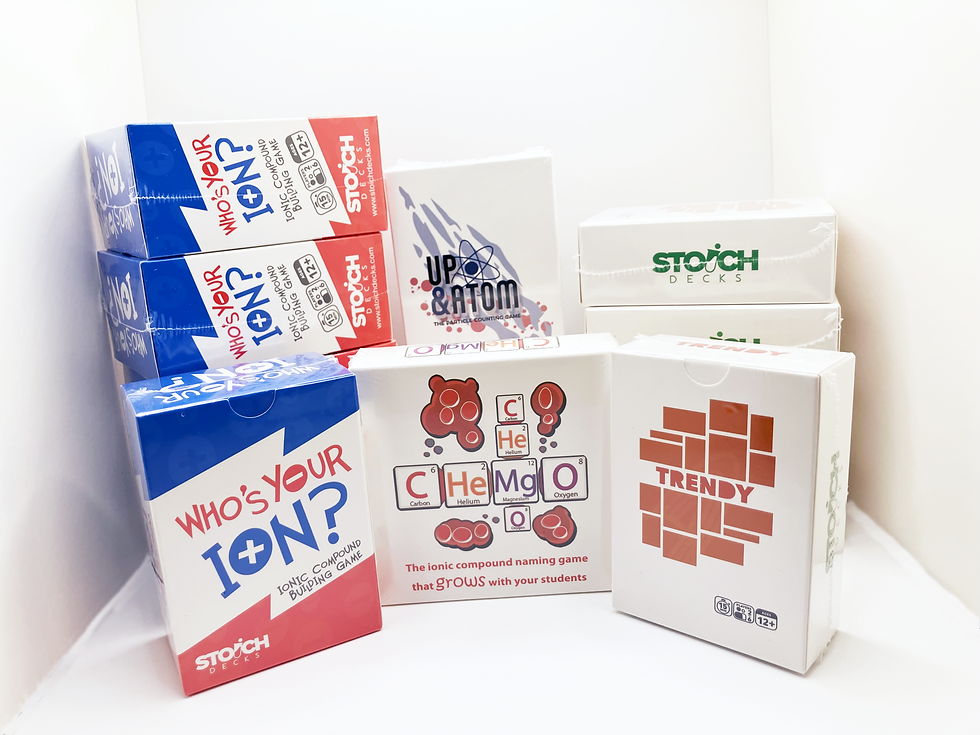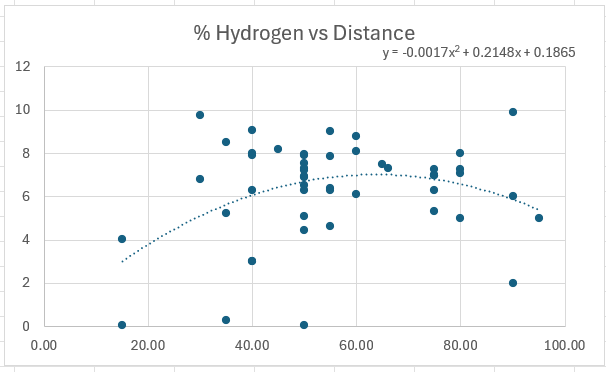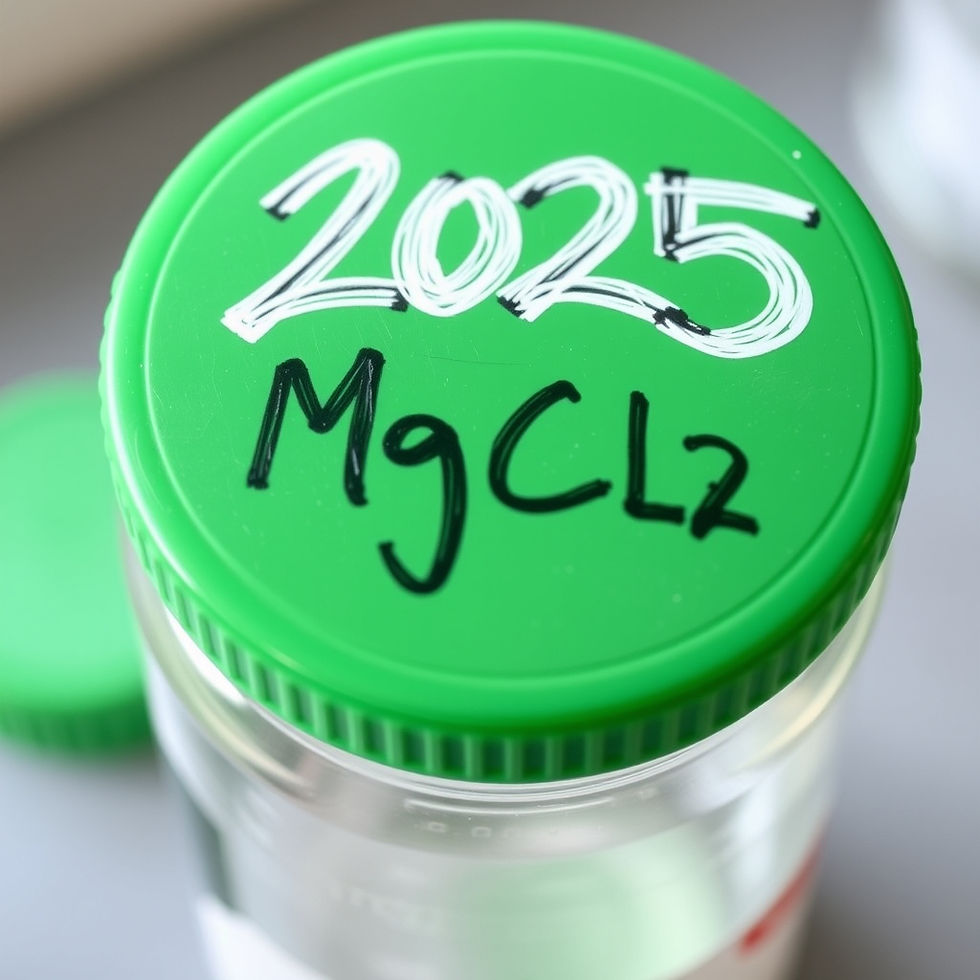Retaking chemistry tests benefits students (and you!)
- Brennan Koch
- Sep 5
- 4 min read
To allow retakes on tests or not allow retakes, that is the question.
This question stirs up a bunch of deep conversations about psychology. I’m not interested in that. What I am interested in is my students being successful in chemistry. Because of that goal, I will explain why I do allow retakes and why chemistry benefits more than many other subjects with retakes. I will also explain my system for administering them, which seems to build stronger students as well. Put down your pitchforks and hear me out.
Chemistry is built vertically, not horizontally
Grade-level chemistry, almost more than any other science topic builds vertically. What I mean is that the content in this chapter is needed before success in the next chapter can be had. It really is like building a pyramid and laying down the first layer of stones precisely. (Plus, the kids feel like they are peasants carrying stones, at least at first) You have to know chapter one. And the chapter after that. And after that. Think of it. If a student fails to understand how to manipulate moles, how bad is the rest of the year going to be?

Retakes allow (or force) your students to build the base of the content first before they move on.
This is going to age me, but I started requiring retakes over 20 years ago. If a chemistry student received a D or F, they had to retake the test. And then re-retake if necessary. I wouldn’t let them proceed until they had the content down. It’s for their own good. I admit now, I don’t require retakes, but I allow them. Why? For the benefit of the student.
The Key to Unlock the Retake
In my current system, the students must take some actions before they are allowed to retake the test. The key to unlocking the ability to retake a test is for them to turn in a completed and graded practice test. I give the practice test about a week before real test. It models the real test precisely. There is a full key with all my work posted on the classroom website. Therefore, every student has complete access to the type of question and the work it takes to answer that question. On test day, they turn them in. They aren’t worth any points, but it allows them to retake the test if needed.
Pro Tip: Students who take a practice test, grade it, and turn it in are significantly less likely to NEED the retake!
Make Test Corrections
If a student turns in their graded practice test and then still manages to get a bad grade on the real test, they have a couple more hoops to jump through. The first is that they have to make test corrections on their failed test. They have to prove that they can get the right answer. Sometimes, these corrections are simple and fast. Sometimes it requires a total overhaul of their work. Either way, they have to prove they know the right direction.
Meet with the Teacher
I meet, one on one, with every student that is going to retake a test. The goal is to ask them, “What part of the corrections was the hardest for you?” They are usually very honest about that. So, we go to that section of their failed test and dissect it. I usually write a practice problem off to the side and watch them work through it. That way I can continue to identify broken pieces in their logic. I tell them that we aren’t done with our meeting until I have great confidence in their ability to get an A on the retake. That is their goal. That is my goal.
Do Extra Practice
Sometimes, during our meeting, I realize that they are not ready for the retake yet. I will assign them some extra practice. I have lots and lots of posted practice problems with complete keys. They have to take it home, do it, grade it, and return it to me before they can retake the test.
Pro Tip: Create lots of practice problems with keys and post them to your class. Students who do lots of practice problems and check them against robust keys are less likely to need a retake.
Super Pro Tip: When whiny parents come to you asking why you are failing their child, you can show them lots of practice problems with robust keys and ask how many of these did their child do before the first test. Guess what? The pressure goes off of you and onto their kid. It’s beautiful.
Take the Retake within a Week
Once the students receive their original graded tests back, the clock starts ticking. They have to complete all of the steps and retake the test within 7 days. It is enough time for them to do it. It isn’t too much time that they forget info or swamp themselves in the current content. It is the student’s responsibility to schedule when that retake will take place. They just have to go through all the steps first.
1. Turn in the practice test.
2. Make corrections.
3. Meet with me.
4. Do extra practice if needed.
5. Take the retake within 7 days.
Even before retakes were en vogue, I could see the benefit for chemistry. Build stronger students along the way and you will find that the top of the chemistry pyramid has a really great view.
Looking to increase classroom engagement without sacrificing content? Use Stoich Decks curriculum-centric games! Use games to teach moles, balancing charges, solubility, ionic formulas, and periodic trends. Check them out today.





Comments